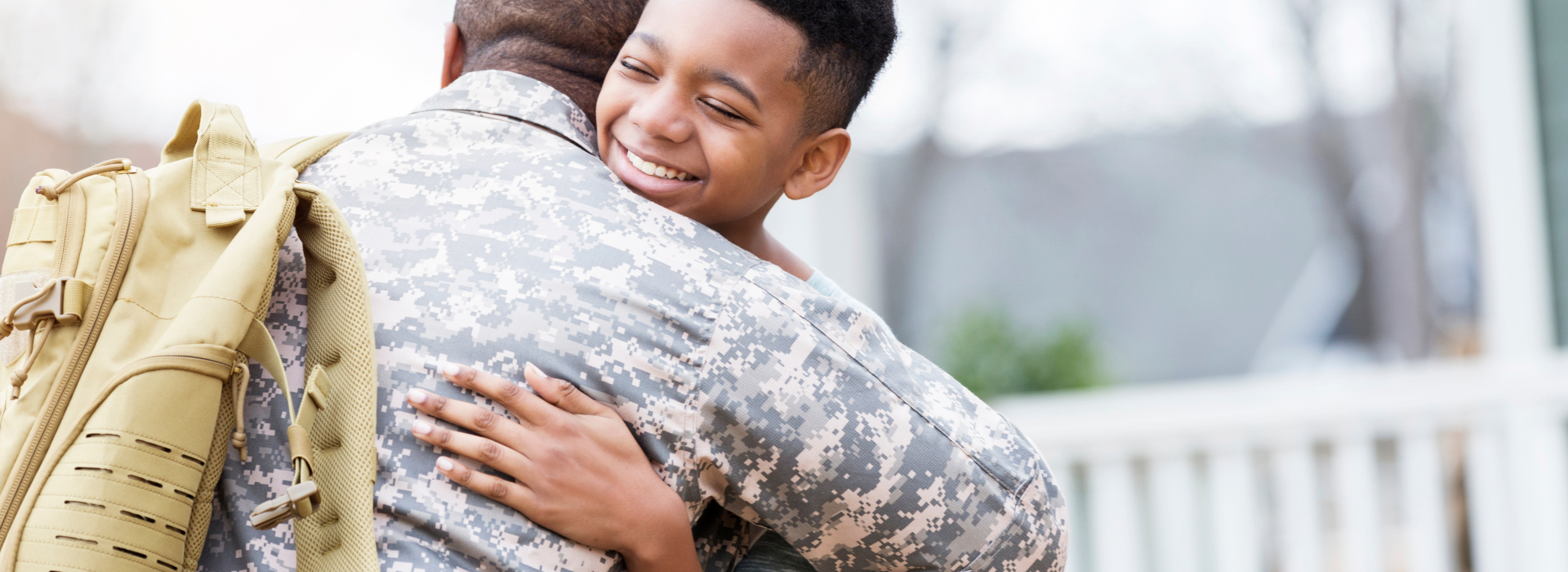
New Research to Help Military Members, Families During Post-Deployment Transition
Military transition to civilian life can be challenging to navigate for many veterans and non-active duty members, especially those who experience severe or long-term stress during their service.
According to a report from the Pew Research Center, nearly half of all post-9/11 veterans were more likely to say that readjusting to civilian life was challenging. As a community psychologist, Sarah Beehler, PhD, assistant professor in the Department of Family Medicine and Biobehavioral Health at the University of Minnesota Medical School, Duluth Campus, seeks to understand military service member and family experiences during the post-deployment transition through a community-based participatory study.
“The Twin Ports has a unique military presence as home to Air and Army Guard bases as well as Coast Guard members and others,” Dr. Beehler said. “We have a sizable military presence in the community, but they are often an invisible group to a lot of us. I wanted to have a better understanding of their lived experiences and what the community can do to support them.”
With this in mind, Dr. Beehler and her team set out to identify the services offering support to veterans and opportunities for intervention. “When I came to work for the Medical School in 2013, I became interested in rural life and what it means for service members when they return to smaller communities,” Dr. Beehler explained. “What are the challenges for people coming back here?”
The study, supported by a Grant-in-Aid from the University’s Office of the Vice President for Research, began in June. While navigating the COVID-19 pandemic, Dr. Beehler’s first step was bringing people together for conversation and asset mapping of local resources. The team gathered over 20 participants and conducted virtual discussions.
“So far, we’ve been hearing from service members that transitioning their employment is very difficult,” Dr. Beehler said. “They feel civilian employers could benefit from increased awareness about the various skills veterans gain during their service, such as leadership, teamwork and reliability. How can we reach out to those groups who feel like they’re not qualified or are overwhelmed by making that transition between systems?”
Knowing where to go for support is also a challenge expressed by military families, especially those new to the experience. Sharing similar emotions, family members are looking to build more formal ways of connecting with others in similar situations.
In the final phase of the study, Dr. Beehler is searching for creative ways to host a community forum that is still interactive and participatory for people while following CDC guidelines around social gatherings during the pandemic. The team anticipates sharing their study’s results in the months ahead with the hopes that the community will be ready to listen and take action.
“I am driven to promote mental health and wellbeing in our community, and at this point, that is now the longest conflict in U.S. history,” Dr. Beehler said. “As civilians, we live among service members and their families every day, and we want to improve community support during these transitions.”